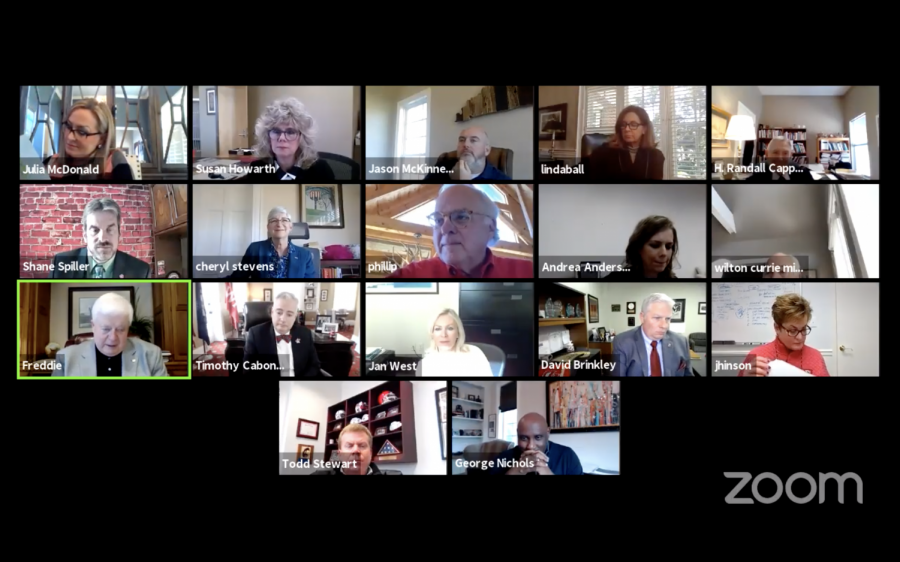Regent committees present new campus plan with focus on Tate Page removal, new business college building
January 22, 2021
The Board of Regents committees met to discuss the new Campus Master Plan, which includes the removal of Tate Page Hall and the inclusion of more greenspaces.
The Campus Master Plan, presented by the Executive Committee on Friday, outlines goals and changes expected to be made within the next 10 years, with projects spanning building deconstruction, facility upgrades, and new campus areas.
The plan calls for the removal of Tate Page Hall to make space for a new building to house the Gordon Ford College of Business.
Bryan B. Russell, chief facilities officer of WKU, said the new Gordon Ford building is the top priority for the university due to state requests for improvements.
The plan also calls for the removal of South Lawn’s parking lot to open up more green space, as well as rerouting traffic around a section of State Street in order to develop a plaza area.
The plan also anticipates that construction on the WKU Commons at Helm Library as well as the Freshman Village is nearing completion and facilities are expected to be operational by Fall 2021.
Janette Scott, part of the Gensler Architects team who developed the plan, said new developments can already be seen across campus.
“There are already tremendously impactful projects underway on this campus, such as the Freshman Village, the WKU Commons at Helm and following that, the demolition of Garrett Conference Center,” Scott said.
In order to create the plaza, traffic will be rerouted toward adjacent Chestnut Street and the road will remain open to Topper Transit only.
Other improvements include new landscaping along Avenue of Champions and The Colonnade.
Beyond 2031, the plan also advocates for the removal of Minton Hall to create more greenspace in front of DSU, as well as decommissioning Jones Jagger Hall, Grise Hall, Potter Hall and the Industrial Education Building due to their age and faculty ratings.
The Executive Committee also evaluated President Tim Caboni, during which many board members expressed appreciation for his service during his tenure.
Regent George Nichols expressed his appreciation for Caboni, saying that to be a university president is both one of the worst but most rewarding jobs to have.
“Dr. Caboni’s efforts have shown real impact and success for the university,” Nichols said. “It’s been an honor for me to sit and watch this and realize how difficult it is in our role as Regents, then to sit and feel sorry for Dr. Caboni in his role as president.”
Susan Howarth, executive vice president for Strategy, Operations and Finance, announced for the Finance and Budget Committee that the university’s budget has done surprisingly well despite risks presented from COVID-19.
“All of this second quarter report is just excellent news for the university,” Howarth said. “I’m really proud of how the campus is tracking on revenue and how the campus is doing on meeting our expenditure revenue budgets.”
Howarth said the revenue budget expected 200 freshmen students, but surpassed this goal with over 400 incoming students. State appropriation funds have remained stable, and grant and contract funds have increased thanks to increased CARES funding.
Expenditures have been slightly higher than expected, which Haworth said is a result of recent financial aid increases, but does not pose a significant issue in the long run.
Michael J. Collins can be reached at [email protected]. Follow him on Twitter @mjcollinsnews.
























